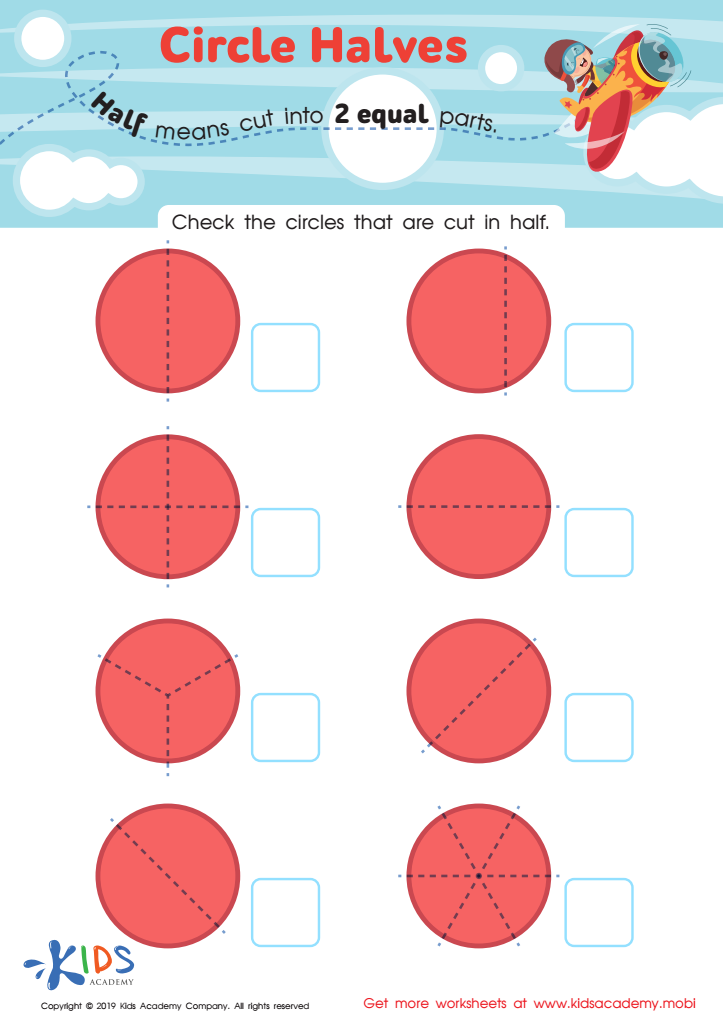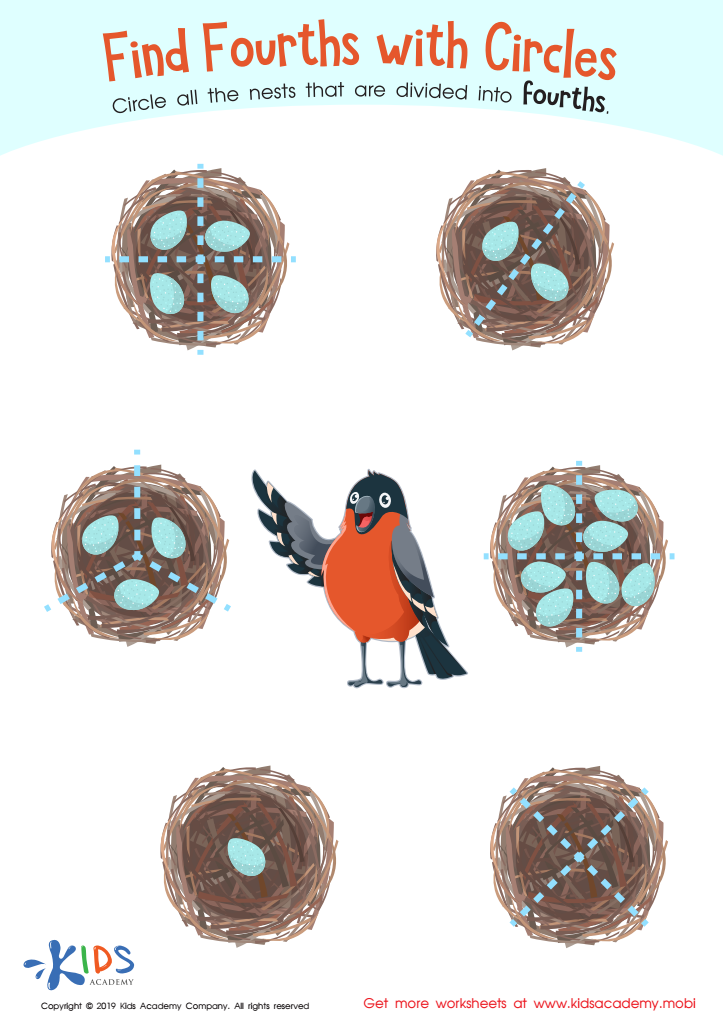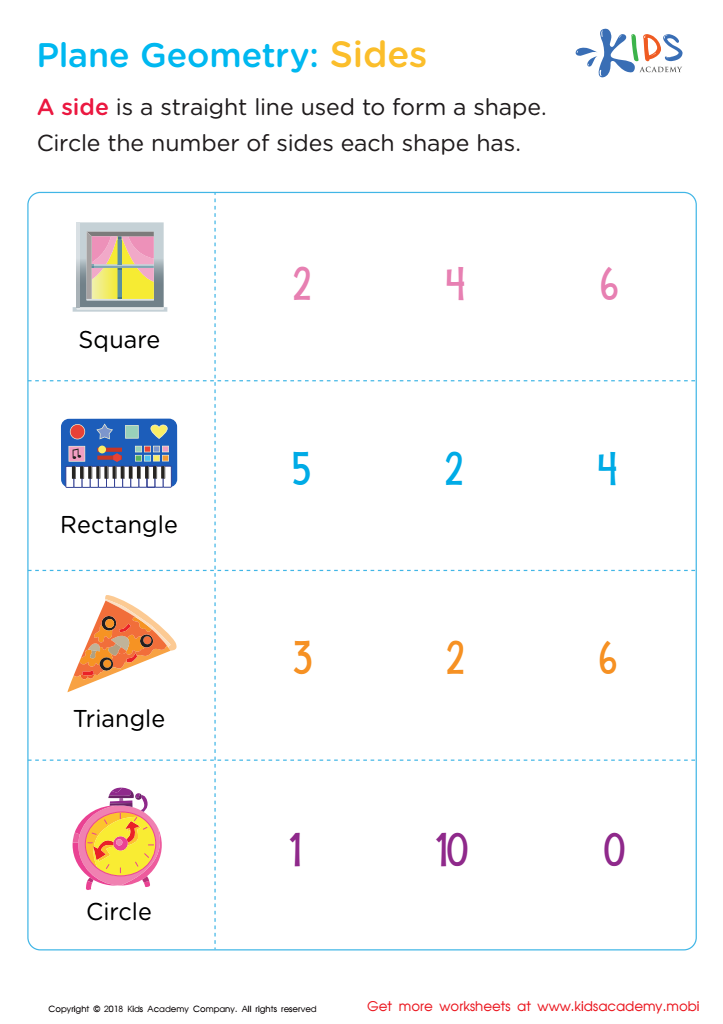Basic geometry skills Geometry Worksheets for Ages 3-9
4 filtered results
-
From - To
Looking to spark your child's interest in math? Our "Basic Geometry Skills" worksheets are perfect for young learners aged 3-9! These engaging activities help children develop foundational geometry skills, including shape recognition, spatial understanding, and basic geometric concepts. With colorful visuals and fun exercises, our worksheets ensure that learning is interactive and enjoyable. Perfect for both classroom settings and homeschooling, these worksheets support children in building essential math skills through hands-on practice. Visit Kids Academy for a variety of printable worksheets designed to make geometry an exciting adventure for your child!


Circle Halves Worksheet


Drawing a Triangle Worksheet


Find Fourths Circles Worksheet


Plane Geometry: Sides Worksheet
Basic geometry skills are crucial for children ages 3-9 because they lay the foundation for more advanced mathematical concepts and reasoning. At this young age, children are naturally curious and eager to explore the world around them, making it an ideal time to introduce geometric concepts like shapes, sizes, spaces, and patterns. Understanding geometry helps develop spatial awareness, which is essential for everyday activities like navigating surroundings, organizing objects, and understanding maps.
Moreover, geometry fosters critical thinking and problem-solving skills. When children learn to recognize and describe shapes, they also practice making observations, classifying things, and identifying relationships between objects. These are key skills not only in math but across all subjects and in life generally.
Additionally, engaging with geometry through hands-on activities like building blocks, drawing, and playing with puzzles enhances fine motor skills and hand-eye coordination. These activities also make learning geometry fun and interactive, fostering a positive attitude towards math from an early age.
For parents and teachers, paying attention to these skills ensures that children build a strong mathematical foundation, paving the way for future academic success. Integrating geometry into daily routines and playtime activities helps children understand its relevance and applicability in the real world. Ultimately, foundational geometry skills equip children with the tools they need for lifelong learning.
 Assign to My Students
Assign to My Students


























